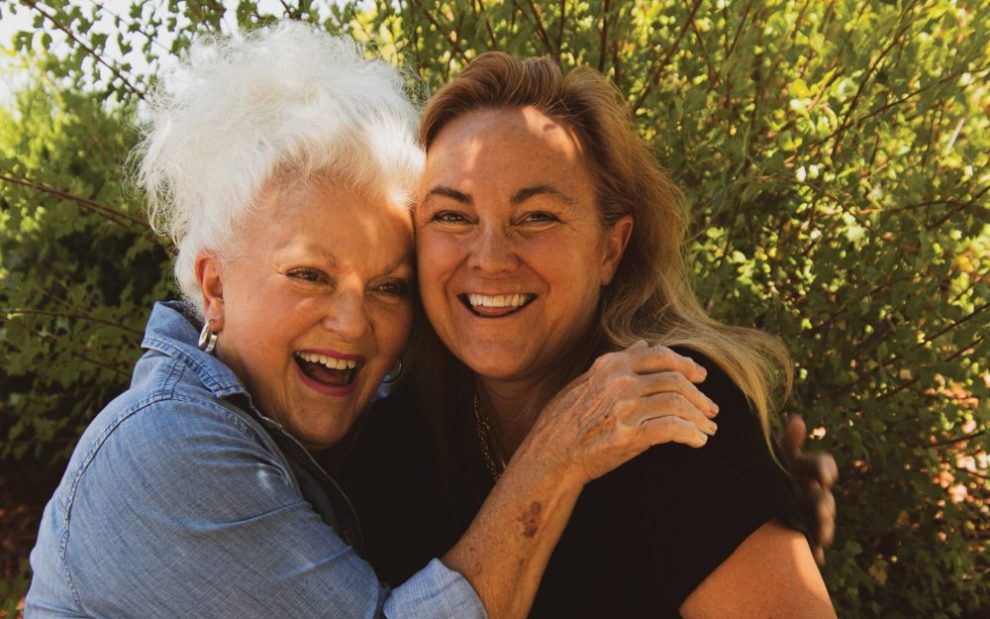About a decade ago, my maternal grandmother died of Alzheimer’s disease. As her memory faded, so did her knowledge of her friends, husband, and children. Eventually, only my grandmother’s family of origin remained in her mind, until her sisters started to slip away as well and the singular person she called for was her mother. Here was an 82-year-old woman who had spent the majority of her life as a wife, who had the utter respect and love of her 10 children surrounding her, and she died a daughter. After everything, this was her prevailing identity.
At this moment in my life, I’m in the thick of motherhood. Even as I feel grounded in my identity beyond my role as “mommy”—I work outside the home; I take trips sans children; I listen to more Jim Croce than CoComelon—my 30s have so far been largely defined by being a mom. Besides the incredible volume of time and energy that goes into caring for and feeding my toddlers, much of my mental and emotional stamina is directed to topics tangential to motherhood. I mean, I’ve devoted at least an hour each month for the past 10 years to considering how to either curb or maximize fertility, for God’s sake.
Yet, I understand my grandmother’s pull toward being a daughter, because even as so much of my internal and external reserves go toward my children these days, the sense of being my parents’ child is never too far off my mind. And it was definitely on my mind this past month.
Here’s why: After having returned to the area in which I grew up at the beginning of the pandemic, my husband and I made the unexpected and uneasy (at least for me) decision to move and buy a house within the region last month. We knew we didn’t want to stay where we had been living forever, but it was working well at the moment, and—to put it all out there—this isn’t the most financially stable period of our lives. So while the move seemed like it would probably be a good long-term choice, it wasn’t abundantly clear to us that it was the best choice in the moment. And when I’m making major life decisions, I prefer abundant clarity.
In the absence of abundant clarity, I wanted my parents’ approval. More accurately, I craved it. Not only did I want their approval, I wanted their affirmation as well. I wanted to know that my parents thought this house purchase was The! Best! Decision! Ever!
It was maybe a bit ridiculous, and getting that kind of affirmation from my parents was about as likely as having abundant clarity.
It’s not that my parents are withholding of affirmation. Quite the contrary. They’ve always been very verbal with their expressions of love and support, and I have a deep sense that I’ve made them proud with my choices in my career, partner, and overall approach to life. But my parents are also humble people who typically withhold their opinions and judgments on most things. I theoretically appreciate this quality, but it can be hard in the moments when I really, really want them to tell me that they think my idea is a great one.
When I realized about two weeks into our house consideration and buying process that I wasn’t going to get their over-the-top affirmation for this choice, I began to turn my gaze inward and started to reflect on the question: Why do I so need my parents’ approval?
On the one hand, I don’t think my need is particularly unique. When I graduated from divinity school at age 25, I remember worrying so much that my parents would question my job choice. Distraught by both the thought of that and the fact that it upset me so much, I sought out our school chaplain. After hearing my woes, she offered a warm embrace and these validating words: “Oh, honey! You’re never going to stop wanting your parents’ approval! None of us does! My parents are dead, and I still care what they would think.” Whether she was right with her generalization or not, she normalized my feelings and made me feel better. I don’t mind being in the company of an incredibly confident and zany near-octogenarian.
On the other hand, caring so much what my parents thought about a decision that my husband and I carefully considered still seemed a bit, I don’t know, pathological? So I decided to crowdsource the only three people who I thought could possibly understand: my siblings. While my biggest takeaway from the conversations was that my brothers, sister, and I have all married saints who put up with a lot of super annoying qualities that the four of us share, I also gained some insight into my approval-seeking nature.
My siblings agreed that I probably look for my parents’ approval more than they do because of my geographical proximity to them. They also shed light on the fact that we all care a lot what our mom and dad think, not so much because we need external validation, but because we want to be certain kinds of people. Somehow my parents’ approval signifies that kind of becoming.
In this way, saying that “I need my parents’ approval” isn’t really the best way to describe what’s going on. More accurately, I want to be a good human, and my parents, by my estimation, are good judges of that. I’m extremely lucky to have been raised by two generous, helpful, ethical, and fun individuals. If they approve of something, I see it as a marker of me being on the same path.
It’s sort of like how I’ve never really thought of “fear of the Lord” as being the best way to describe the traits encapsulated through that particular gift of the Holy Spirit. I could be watering down scripture and tradition, but I don’t believe that we are actually meant to fear our merciful and loving God. It just doesn’t seem theologically or linguistically congruent. Instead, I think we are meant to feel a reverence so deep and so shocking that it mimics the gut-wrenching sensations of fear.
The phrases we use—whether they’re “seeking approval” or “fear of the Lord”—don’t always get at exactly what’s going on, because, well, language is limited.
But what isn’t limited, I’m seeing as I reflect on the past few months, is how much being a daughter is who I am. I can get married. I can have my own children. I can (believe it or not) independently make decisions. But because I have equal parts respect, love, and admiration for my parents—and because they seek continual growth, deeper understanding, and expansive selflessness—I’m probably always going to want to be like them and to have them approve of me.
Maybe that’s not such a bad thing.
This article also appears in the March 2023 issue of U.S. Catholic (Vol. 88, No. 3, page 43-44). Click here to subscribe to the magazine.
Image: Unsplash/Logan Weaver














Add comment